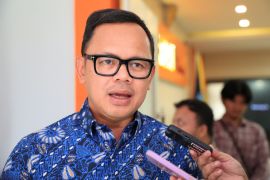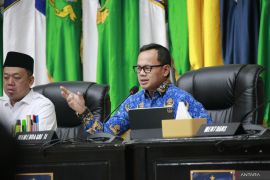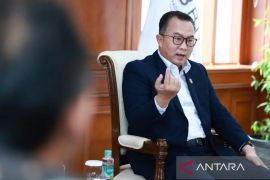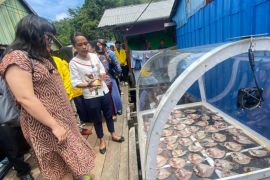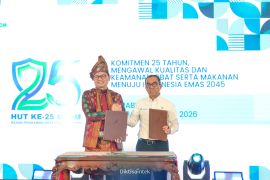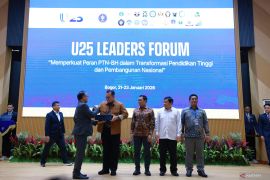“It would be unfortunate if innovation were merely a gimmick - something done for prestige, pride, or even the popularity of a regional leader. If it doesn’t provide solutions, it isn’t innovation,” Bima said here on Wednesday.
He stressed that innovation must add value and deliver tangible benefits to the public. According to him, genuine innovation can be identified when it provides solutions, improves efficiency and effectiveness, and enhances comfort for its beneficiaries.
Bima delivered his remarks while opening the 2025 Regional Leaders’ Presentation at the Ministry of Home Affairs headquarters in Jakarta.
The Deputy Minister underlined the importance of building a sustainable innovation ecosystem across all levels of government, both central and regional.
He noted that innovations driven solely by the pursuit of awards or recognition are unlikely to endure and risk losing their substantive meaning.
“Innovation should not be seen merely as a competition to win awards, recognition, or incentives. Once again, innovation must be rooted in an ecosystem,” he said.
Bima explained that an ideal innovation ecosystem rests on five main pillars namely research, regulation, institutional framework, actors, and funding. Without serious and continuous research, he added, innovation will struggle to make a lasting impact.
“All innovations are meaningless if they are not supported, reinforced, and grounded in serious research,” Bima said.
He also highlighted the importance of regulations that institutionalize innovation so it becomes an integral part of regional governance systems. Many local innovations, he noted, fail to continue because they lack a solid legal foundation or are not incorporated into government programs and activities.
Bima further underscored the role of non-governmental actors - including universities, communities, and the private sector - in strengthening local innovation ecosystems.
“We expect these innovation actors to also emerge from the non-government sector. That’s how the ecosystem will truly grow,” he said.
During the event, Bima also emphasized that the presence of regional leaders in innovation assessment presentations reflects the integration of innovation within broader regional policy.
“The direct involvement of regional heads reinforces the integration of innovation. It represents political will - a symbol that the innovations presented here will become part of overall regional policy,” he said.
Bima also expressed appreciation for regional leaders who attended the event in person, including the Governor of West Sumatra, as a sign of strong commitment to innovation focused on real solutions.
He added that building a regional innovation ecosystem cannot be achieved instantly. It requires "effective, collaborative, and visionary leadership" to transform innovation into a culture within the bureaucracy.
Bima called on all regional leaders and civil servants to embrace a spirit of change and dedication to public interest. He expressed hope that Indonesia’s bureaucracy would evolve into one that is service-oriented, innovative, and adaptive to contemporary challenges.
“The goal of this innovation ecosystem - and of the IGA program - is to cultivate as many civil servants as possible who move upward in performance and mindset, transforming our bureaucracy from the lower left to the upper right quadrant,” he said.
IGA stands for the Innovative Government Award, an annual assessment and recognition program organized by the Ministry of Home Affairs. The award is presented to regional governments - provinces, districts, and cities - that successfully implement innovations in local governance.
Related news: Bappisus Head cautions regional leaders on corruption, morality
Related news: Regional leaders urged to adapt to job creation challenges
Translator: Fianda, Azis Kurmala
Editor: Primayanti
Copyright © ANTARA 2025

